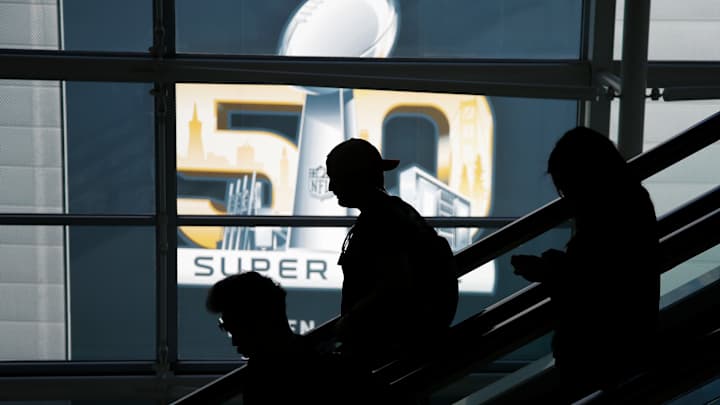TV deal means Las Vegas fans won't miss Super Bowl after all

LAS VEGAS (AP) Las Vegas football fans won't miss the Super Bowl after all.
Cox Communications struck a deal with the local CBS affiliate Thursday, ending a bitter rate dispute between the cable provider and KLAS-TV that had threatened to leave TVs dark to Sunday's championship between the Carolina Panthers and Denver Broncos.
It reinstates the channel to tens of thousands of Cox cable subscribers after a five-day blackout that left football fans scrambling to find backup plans for the big game. About 40 percent of all area households pay Cox for TV, internet or phone services, according to market research firm SNL Kagan.
Cox and KLAS declined to release details on the agreement, including the amount paid to the station and length of the contract, citing nondisclosure terms.
During the impasse, the station's parent company, Nexstar Broadcasting Group, said it wanted the cable giant to pay more to carry its programming, but Cox had balked at the costs. The station pulled itself off the Cox lineup Saturday after five months of failed contract negotiations.
That intensified the public battle, with both sides urging customers to take action against the other.
Cox had said KLAS was ''out of line'' to seek a threefold rate increase, which they said could ultimately drive up cable bills. The TV station said its initial proposal was closer to double current prices and insisted that local broadcasters are severely underpaid compared with what Cox pays a channel like ESPN.
Cox spokesman Juergen Barbusca would not say if customers should prepare for higher costs but maintained that rate increases from content providers are the main reason for costlier bills.
The cable provider also would not say how many frustrated customers cut ties with the company but acknowledged that it did lose some business.
''We saw a lot of passion. We saw a lot of emotion,'' Barbusca said. ''We are aware that some individuals chose to go with another provider.''
Lisa Howfield, the TV station's general manager, said the public fight was now water under the bridge.
''When we're in the battle, we're in the battle, but when we're done, we move on,'' she said.
Battles pitting TV service providers against content programmers and station owners have become increasingly common in recent years. Last year, a record 193 blackouts occurred nationwide, more than double compared with 2014, according to the American Television Alliance. The group lists cable companies among its partners.
The latest deal also resolves Nexstar Broadcasting Group's fight with Cox at a dozen other television stations in Florida, Louisiana, Arizona, Missouri and Virginia.
